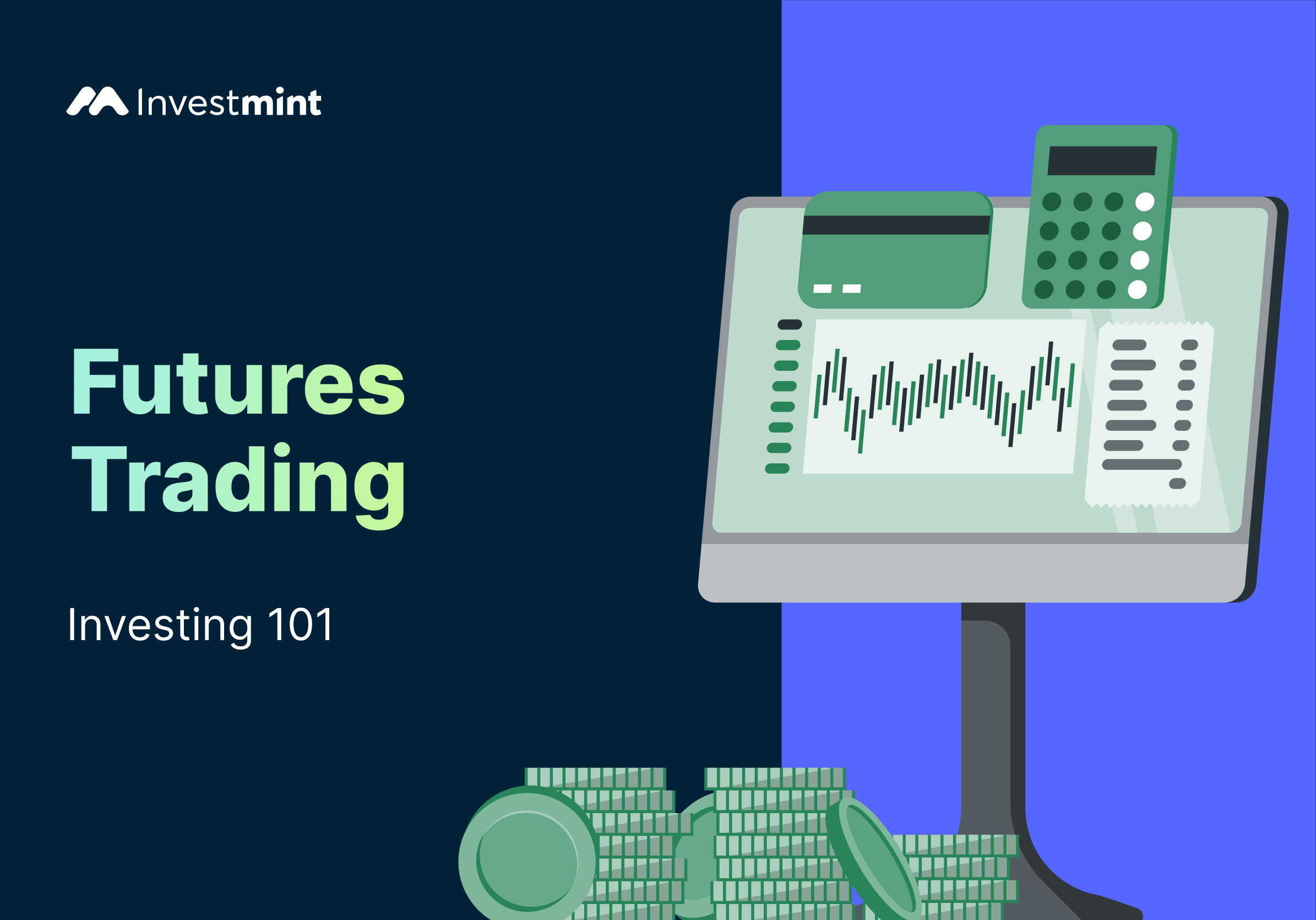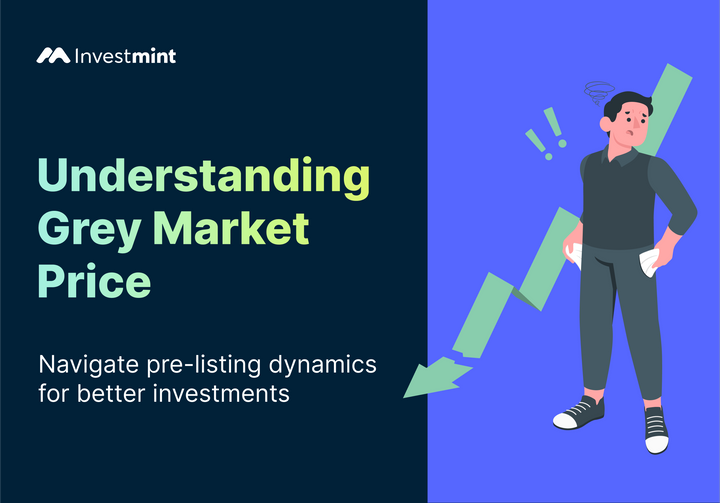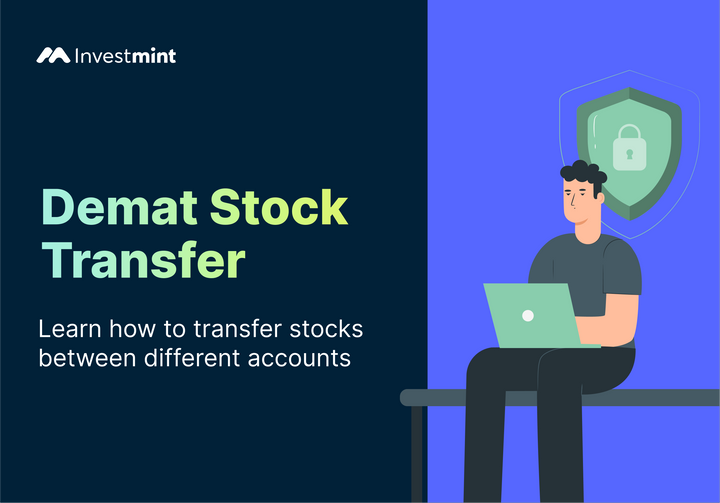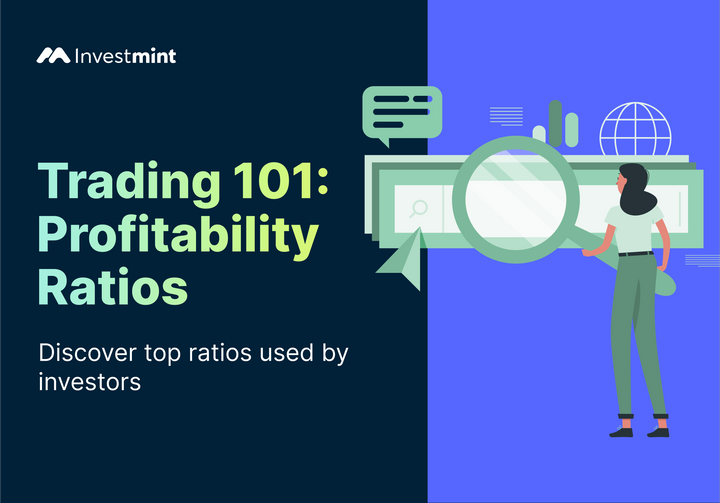Futures Trading: Everything You Need To Know
Explore the world of futures trading with insights on standardisation, leverage, and advantages. Learn how to start, trade & thrive in futures.

Introduction
Have you ever planted a seed and hoped it would grow and bear fruits? Some of us might have, but here’s the thing: you cannot be sure of how the seed will grow or when it will bear any fruits (if at all). Futures contract trading is the same.
Futures are derivative products that help you speculate, arbitrage, or hedge your portfolio and profit from the movement in a stock or commodity. You can bet on the market's direction and choose a futures contract based on your estimation.
Let’s say you are an investor who expects the Nifty to do well in the next few months. Let’s say It is trading at 17,000, and you expect it to increase by at least 500 points. You can bet on its upside by buying a Nifty futures contract. You could buy a futures contract at 17,000 points. And, if the Nifty rises about 17,000, you can sell your futures contract and make a profit.
On the flip side, say you expect the Nifty to drop by 100 points in the next few months. You can bet on the downside by selling a Nifty futures contract. Say you sell the contract at 17,000. If the index falls below that point, you can buy back the contract at a lower price and pocket a profit.
What Is Futures Trading?
Starting with what futures are- there are contracts or agreements between two parties to buy or sell an asset at a future date and price agreed upon by both parties. Futures contracts are standardised agreements where payment and delivery of the asset are made on a specified future date.
In futures trading, buyers and sellers agree on a price for the underlying asset in the future, but the transaction is settled later. The futures contract specifies the underlying assets' delivery date, quantity, and price to be traded on a futures exchange. The futures exchange acts as an intermediary between the buyers and sellers, guaranteeing that both parties fulfil their obligations.
To understand futures contracts better, let’s look at their key characteristics:
- Standardisation: Futures contracts are standardised agreements that specify the underlying asset's delivery date, quantity, and quality. This standardisation allows for easy trading and price discovery on the futures exchange.
- Traded on Exchanges: Futures contracts are traded on regulated exchanges like the National Stock Exchange of India (NSE) and the Multi Commodity Exchange of India (MCX). Exchanges ensure transparency, liquidity, and price discovery.
- Margin Requirements: Futures traders must deposit an initial margin with their broker, which acts as collateral for the contract. Additional margin may be required if the market moves against the trader's position. This helps mitigate counterparty risk and ensure traders can fulfil their obligations.
- Leverage: Futures contracts are highly leveraged instruments, meaning traders can control a large position with relatively little capital. This can amplify profits and losses, making futures trading a high-risk activity.
- Delivery Or Cash Settlement: Futures contracts can be settled by physically delivering the underlying asset or cash settlement, depending on the contract specifications. Most futures contracts are settled by cash, as physical delivery can be complex and expensive.
- Expiration: Futures contracts have a specified expiration date, after which they become invalid. Traders can roll over their positions to a new contract if they wish to continue their exposure to the underlying asset.
How To Start Futures Trading?
Starting futures trading requires a process similar to stock trading. Here are the steps to help you begin your journey:
- Open a trading account with a broker
- Complete the KYC process
- Fund your trading account
- Learn about futures trading
- Start trading
Futures Trading Products In India
Futures trading takes place mainly in two forms in India – stock futures and index futures. All futures contracts in India have three contracts running at one particular time- the near month, mid-month contract and the far month. Apart from these, currency and commodity futures contracts are also available.
Index Futures
Index futures are financial contracts that allow traders to speculate on the future direction of a stock market index. These contracts are standardised agreements between two parties to buy or sell an underlying index at a specified price and time in the future. India's most popular index futures are based on the Nifty 50 and the Bank nifty indices. Trading in index futures allows traders to gain exposure to the broader market rather than individual stocks.
Stock Futures
Stock futures are financial contracts that allow traders to buy or sell a specific stock at a predetermined price and time in the future. Stock futures are based on individual stocks listed on a stock exchange, such as the National Stock Exchange (NSE) or the Bombay Stock Exchange (BSE) in India. These contracts allow traders to gain exposure to a specific stock without actually owning the underlying asset.
Currency Futures
In India, currency futures are available for trading on major currency pairs such as USD/INR, EUR/INR, GBP/INR, and JPY/INR. These contracts allow traders to speculate on the future direction of the exchange rate between the two currencies.
Commodity Futures
In India, commodity futures are available for various commodities such as gold, silver, crude oil, natural gas, and agricultural products. These contracts allow traders to speculate on the future price movements of the underlying commodity.
Difference Between Options And Futures
Advantages Of Futures Trading
- Leverage: Futures contracts allow traders to take large positions in the market with relatively small amounts of capital. This is known as leverage, and it can amplify profits if the trade goes in the trader's favour. However, it's important to note that leverage also increases the risk of losses.
- Liquidity: Futures markets are highly liquid, meaning that there are usually buyers and sellers available at any time. This makes it easier for traders to enter and exit positions quickly without worrying about finding a counterparty to trade with.
- Hedging: Futures contracts can be used as a hedging tool to offset potential losses in other investments. For example, a farmer may use futures contracts to lock in a price for their crops, protecting themselves against a drop in market prices.
- Arbitrage Opportunities: Futures contracts open the possibility of taking advantage of arbitrage. Suppose the price of a stock is currently trading at Rs 100 in the cash market, and the futures contract for the same stock is trading at Rs 105. This price difference creates an arbitrage opportunity. A trader can buy the stock in the cash market for Rs 100 and simultaneously sell the futures contract for Rs. 105. This locks in a profit of Rs 5 per share. This arbitrage opportunity arises because the futures contract is based on the expected future price of the underlying asset, whereas the spot market price reflects the current market price.
- Transparency: Futures markets are highly regulated, with clear rules and procedures for trading and settlement. This level of transparency helps to reduce the risk of fraud or market manipulation, giving traders greater confidence in the market.
Summary
- Since the exchanges regulate futures contracts, investing in such contracts is considered a risk-free option. The low margin requirement makes futures trading a popular option among investors.
- Futures contracts are obliged to honour the contracts, unlike options where buyers and sellers are not obliged to buy/sell an asset.
- Futures contracts offer many advantages, such as high leverage, high returns and hedging against the risk of price fluctuations.
- With proper research and market analysis, one can trade in futures and book huge amounts of profit.



